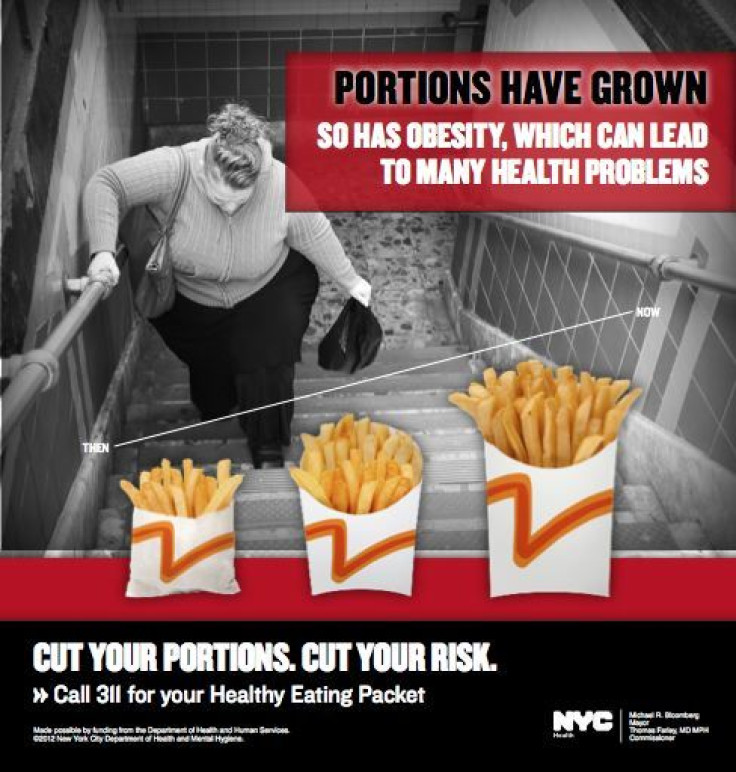In Wake of Soda Ban, Are Obesity Campaigns Backfiring?

Anti-obesity campaigns often fail to encourage people to follow healthy lifestyle because they stigmatize obese people, a new study from Yale University says.
Researchers found that certain campaigns create a sense of fear or shame around obesity. The campaigns, with messages like "being fat takes the fun out of being a kid," and, "Chubby kids may not outlive their parents," discourage people from losing weight and instead make them depressed.
"By stigmatizing obesity or individuals struggling with their weight, campaigns can alienate the audience they intend to motivate and hinder the behaviors they intend to encourage," said Rebecca Puhl, the Rudd Center's director of research and lead author of the study.
Depression is detrimental to any weight loss program. Research has shown that depression encourages bad eating behaviors. Foods high in fat appeal more when a person is depressed, starting a cycle where a person eats more than they want to. The last thing an anti-obesity campaign would want to do is to encourage this cycle.
Not all campaigns have failed to encourage healthy eating habits. Michelle Obama's "Let's Move" campaign which encourages Americans to "Learn the facts, eat healthy, get active, take action" and the national campaign that encouraged people to eat fruits and vegetables called "5-A-Day" made no reference to obesity and still talked about weight loss.
Researchers say that anti-obesity campaigns that show specific weight loss strategies work better than those that scare or blame people for being overweight.
"Public health campaigns that are designed to address obesity should carefully consider the kinds of messages that are disseminated, so that those who are struggling with obesity can be supported in their efforts to become healthier, rather than shamed and stigmatized," Puhl added, according to a press release.
The study was published in the International Journal of Obesity.



























